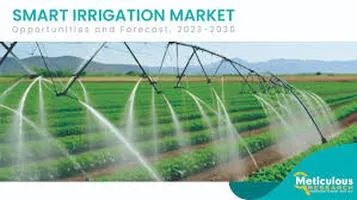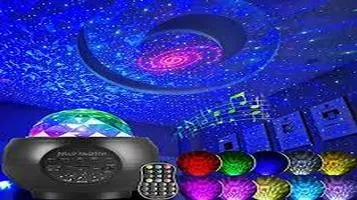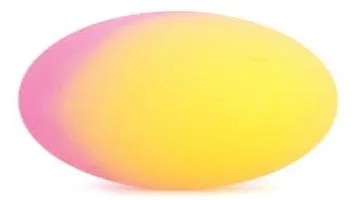Revolutionizing Water Management: A Comprehensive Review of Smart Irrigation Controllers
Smart irrigation controllers are advanced devices designed to optimize water usage in landscaping and agricultural applications. Unlike traditional timers, these controllers use real-time data, such as weather forecasts, soil moisture levels, and plant requirements, to adjust watering schedules automatically. By integrating with sensors and weather data, they ensure that plants receive the precise amount of water needed, reducing waste and promoting sustainability. This technology not only conserves water but also enhances plant health by preventing overwatering and underwatering. Many smart controllers are compatible with smartphones and other smart home systems, allowing users to monitor and adjust settings remotely. As water conservation becomes increasingly important, smart irrigation controllers offer an efficient and eco-friendly solution for both residential and commercial landscapes.

In the past few years, the global emphasis on sustainability and resource conservation has spurred a technological evolution in various industries. One such advancement is the advent of smart irrigation controllers. Designed to optimize water usage in agriculture, landscaping, and home gardening, these devices are revolutionizing the way we manage water resources. This review delves into the functionality, benefits, and potential drawbacks of smart irrigation controllers, offering a nuanced understanding of their role in modern water management.
Functionality and Innovation
At their core, smart irrigation controllers are devices that automate the watering process by using real-time data and advanced algorithms. Unlike traditional timers that operate on a fixed schedule, smart controllers adjust watering schedules based on a variety of factors such as weather conditions, soil moisture levels, plant types, and local climate data. These controllers often integrate with weather stations, soil sensors, and even smartphone apps, providing a seamless and user-friendly experience.
One of the standout features of smart irrigation controllers is their ability to connect to the Internet of Things (IoT). This connectivity allows for remote monitoring and control, enabling users to adjust settings and receive updates from anywhere in the world. Additionally, many smart controllers are compatible with voice assistants like Amazon Alexa and Google Assistant, further enhancing their ease of use.
Environmental and Economic Benefits
The environmental benefits of smart irrigation controllers are significant. Water scarcity is a growing concern worldwide, and traditional irrigation methods often lead to overwatering and wastage. By contrast, smart controllers ensure that water is used efficiently and only when necessary. They can reduce water usage by up to 50%, which not only conserves a precious resource but also minimizes runoff and erosion, protecting local ecosystems.
From an economic perspective, the initial investment in a smart irrigation controller can be offset by the savings in water bills over time. For large-scale agricultural operations, these savings can be substantial. Furthermore, many regions offer rebates and incentives for adopting water-saving technologies, making smart irrigation controllers even more appealing.
User Experience and Accessibility
Smart irrigation controllers are designed with the user in mind. The setup process is generally straightforward, with most devices offering step-by-step instructions and intuitive interfaces. Smartphone apps provide additional convenience, allowing users to customize schedules, monitor water usage, and receive alerts about system malfunctions or weather changes.
However, the user experience can vary depending on the brand and model. High-end controllers often come with advanced features such as detailed analytics, multiple zone management, and integration with other smart home devices. On the other hand, budget options might have fewer features and less robust customer support. It's important for users to carefully evaluate their needs and choose a product that aligns with their specific requirements.
Challenges and Considerations
Despite their numerous advantages, smart irrigation controllers are not without challenges. One potential drawback is the reliance on internet connectivity. In areas with unstable or no internet access, the functionality of these devices can be compromised. Additionally, while the technology is continually improving, some users have reported issues with software glitches and sensor inaccuracies.
Another consideration is the initial cost. While prices have been decreasing, high-quality smart irrigation controllers can still be relatively expensive. This may deter some potential users, particularly small-scale gardeners or homeowners with limited budgets. However, as the market grows and technology advances, it is expected that prices will continue to fall, making these devices more accessible to a broader audience.
Future Prospects
The future of smart irrigation controllers looks promising. Advances in artificial intelligence and machine learning are likely to enhance the precision and efficiency of these devices. For instance, predictive analytics could allow controllers to anticipate changes in weather patterns and soil conditions, making real-time adjustments even more accurate.
Moreover, the integration of renewable energy sources such as solar power could make smart irrigation systems more sustainable and self-sufficient. The development of more affordable and user-friendly models will also play a crucial role in widespread adoption, particularly in developing regions where water scarcity is a critical issue.
Conclusion
Smart irrigation controllers represent a significant leap forward in water management technology. By leveraging real-time data and advanced algorithms, these devices offer a more efficient, environmentally friendly, and user-friendly alternative to traditional irrigation methods. While challenges such as internet dependency and initial costs remain, the long-term benefits in terms of water conservation and cost savings are undeniable.
As technology continues to evolve, smart irrigation controllers are likely to become an integral part of sustainable water management strategies worldwide. For anyone looking to optimize their irrigation practices, reduce water waste, and contribute to environmental conservation, investing in a smart irrigation controller is a decision well worth considering.






